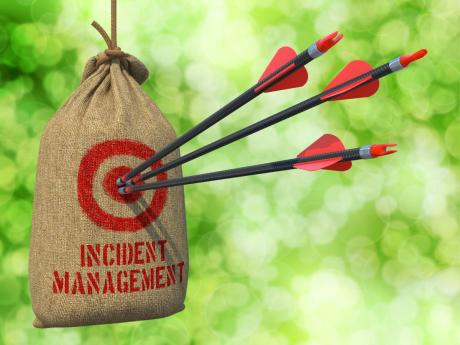Basil Jarrett | Communicating around modern crises
JAMAICA IS not a real place. Or so the popular meme says. But real or imagined, there is probably no place on earth like this small island, when it comes to drama, conflict and just sheer spectacle. Jitters in the investment sector, worry among private security firms, and tensions in taxis over who gets to sit in the child seat, it seems as if companies and organisations are in a constant state of “who’s next”, as the country provides endless fodder for social and traditional media content. With a little planning and some proactive action, however, organisations can prepare themselves for the unexpected and unimagined, and with some luck, may even be able to turn adversity into advantage when faced with emergencies and grim crisis situations.
The success of any company today is dependent largely on its reputation and standing among its customers and critical stakeholders. This is even more critical in competitive industries such as banking, gas stations and insurance, where there is very little product or service differentiation. In these instances, brands must find space to compete and differentiate themselves, and in such instances, the one key battleground that must be fought for, won and held, is the perception held in the mind of consumers and customers.
In this regard, marketing execs will spend inordinate amounts to build and maintain a brand. But far too many make the mistake of confusing brand identity with corporate reputation, an error that can prove costly, especially during times of upheaval and crises.
In its simplest terms, branding focuses on what a product, service or company has promised or delivered to its customers. Corporate reputation, on the other hand, goes a bit deeper, focusing on the credibility, respect and standing that the company enjoys among not just its customers, but also other critical stakeholders such as employees and staff, investors, regulators and the media. Both are important and focusing on one at the expense of the other can create all sorts of problems. Branding helps to offer products that are gobbled up by the market, but reputation protects you from being gobbled up when disaster strikes.
Poor reputations
And here in Jamaica, disaster strikes almost daily. Companies with strong positive reputations are usually perceived as being more trustworthy and more valuable and, therefore, more able to attract customers, investors and quality employees. That’s not to say that companies with poor reputations can’t be profitable, but in industries where there is more bland than brand, organisations are especially vulnerable to anything that damages their reputation. Protecting that reputation, therefore, must be as heavily invested in, as building that brand.
And the best way to protect that reputation is to have a robust, comprehensive and codified crisis communications plan to manage and mitigate the various threats which exist today. That plan must outline the persons and processes that would be used to respond to crises and must, at a minimum, encompass the following steps.
First, it must identify the relevant members of the crisis communications mechanism clearly outlining their roles and responsibilities. In the middle of a crisis is no time to be running around trying to figure out who should be responsible for what, as the first few minutes or hours of a crisis usually help to set the tone and direction for what happens next.
Once your crisis communications team members have been identified, trained and prepped to perform the various roles, the next step should be to identify the criteria that will be used to determine the type, severity and recommended course of action for a crisis event. This ensures that the response is appropriate and proportional as not all emergencies or incidents require an all-hands-on-deck, backs-to-the-wall approach. A process for assessing the incident and its potential severity, as well as its potential impact on operations, the premises and staff must also be included.
WARNING SIGNALS
Monitoring systems should be established to help predict and detect the earliest warning signals of a possible crisis. Crises typically don’t happen overnight or in a vacuum. They are usually the result of a series of mistakes or errors that are compounded over time, just lying in wait to be set off by some trigger event.
And because crises will range in type, nature and subject matter, the crisis communications plan should specify who should be the appropriate spokesperson as required by the type of emergency being faced. Needless to say, such persons ought to be properly trained in how to manage the media, as well as how to conduct media interviews, especially under intense, high-pressure conditions. This is not the place to roll out your prettiest face or your most masculine voice, but rather, the person best able to manage themselves and the interview under the most hostile conditions.
The crisis communications plan must include a list of key emergency contacts as well as a detailed outline of who to be notified in the event of a disaster. Where necessary, it must also identify the procedures for moving to, as well as the places and emergency assembly points where personnel must assemble during an emergency
Finally, the plan must be tested and rehearsed regularly. It must be well known, not just by the crisis communications team, but by all relevant persons who play a key role in its execution. It must also be routinely updated as new threats, new situations and new communications technologies emerge.
Having such a plan in place is no guarantee of a speedy or successful resolution to crisis. But if done right, it can provide you with an excellent springboard to move forward stronger and more resilient, once the worst has passed. This makes it, to my mind, as critical a function as branding, and one that forward-thinking companies ought to be as heavily vested in.
Major Basil Jarrett is a communications strategist and CEO of Artemis Consulting, a communications consulting firm specialising in crisis communications and reputation management. Send feedback to columns@gleanerjm.com


